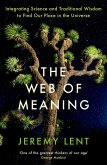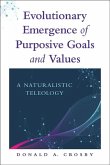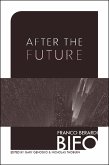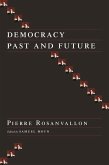Radical ecology typically brings to mind media images of ecological activists standing before loggers' saws, staging anti-nuclear marches, and confronting polluters on the high seas. Yet for more than twenty years, the activities of organizations such as the Greens and Earth First! have been influenced by a diverse, less-publicized group of radical ecological philosophers. It is their work-the philosophical underpinnings of the radical ecological movement-that is the subject of Contesting Earth's Future.
The book offers a much-needed, balanced appraisal of radical ecology's principles, goals, and limitations. Michael Zimmerman critically examines the movement's three major branches-deep ecology, social ecology, and ecofeminism. He also situates radical ecology within the complex cultural and political terrain of the late twentieth century, showing its relation to Martin Heidegger's anti-technological thought, 1960s counterculturalism, and contemporary theories of poststructuralism and postmodernity.
An early and influential ecological thinker, Zimmerman is uniquely qualified to provide a broad overview of radical environmentalism and delineate its various schools of thought. He clearly describes their defining arguments and internecine disputes, among them the charge that deep ecology is an anti-modern, proto-fascist ideology. Reflecting both the movement's promise and its dangers, this book is essential reading for all those concerned with the worldwide ecological crisis.
This title is part of UC Press's Voices Revived program, which commemorates University of California Press's mission to seek out and cultivate the brightest minds and give them voice, reach, and impact. Drawing on a backlist dating to 1893, Voices Revived makes high-quality, peer-reviewed scholarship accessible once again using print-on-demand technology. This title was originally published in 1996.
Radical ecology typically brings to mind media images of ecological activists standing before loggers' saws, staging anti-nuclear marches, and confronting polluters on the high seas. Yet for more than twenty years, the activities of organizations such as
The book offers a much-needed, balanced appraisal of radical ecology's principles, goals, and limitations. Michael Zimmerman critically examines the movement's three major branches-deep ecology, social ecology, and ecofeminism. He also situates radical ecology within the complex cultural and political terrain of the late twentieth century, showing its relation to Martin Heidegger's anti-technological thought, 1960s counterculturalism, and contemporary theories of poststructuralism and postmodernity.
An early and influential ecological thinker, Zimmerman is uniquely qualified to provide a broad overview of radical environmentalism and delineate its various schools of thought. He clearly describes their defining arguments and internecine disputes, among them the charge that deep ecology is an anti-modern, proto-fascist ideology. Reflecting both the movement's promise and its dangers, this book is essential reading for all those concerned with the worldwide ecological crisis.
This title is part of UC Press's Voices Revived program, which commemorates University of California Press's mission to seek out and cultivate the brightest minds and give them voice, reach, and impact. Drawing on a backlist dating to 1893, Voices Revived makes high-quality, peer-reviewed scholarship accessible once again using print-on-demand technology. This title was originally published in 1996.
Radical ecology typically brings to mind media images of ecological activists standing before loggers' saws, staging anti-nuclear marches, and confronting polluters on the high seas. Yet for more than twenty years, the activities of organizations such as
Dieser Download kann aus rechtlichen Gründen nur mit Rechnungsadresse in A, D ausgeliefert werden.









